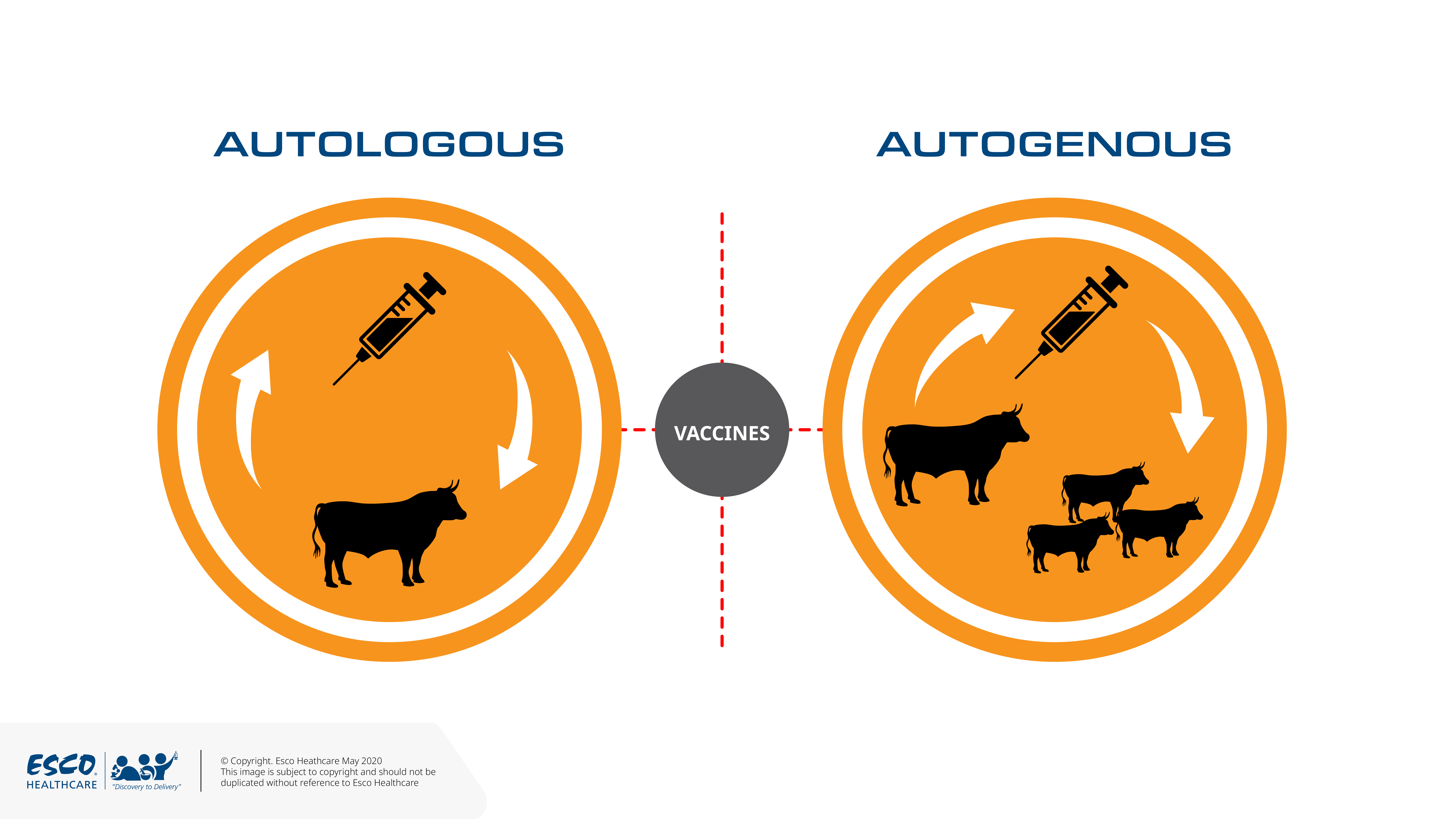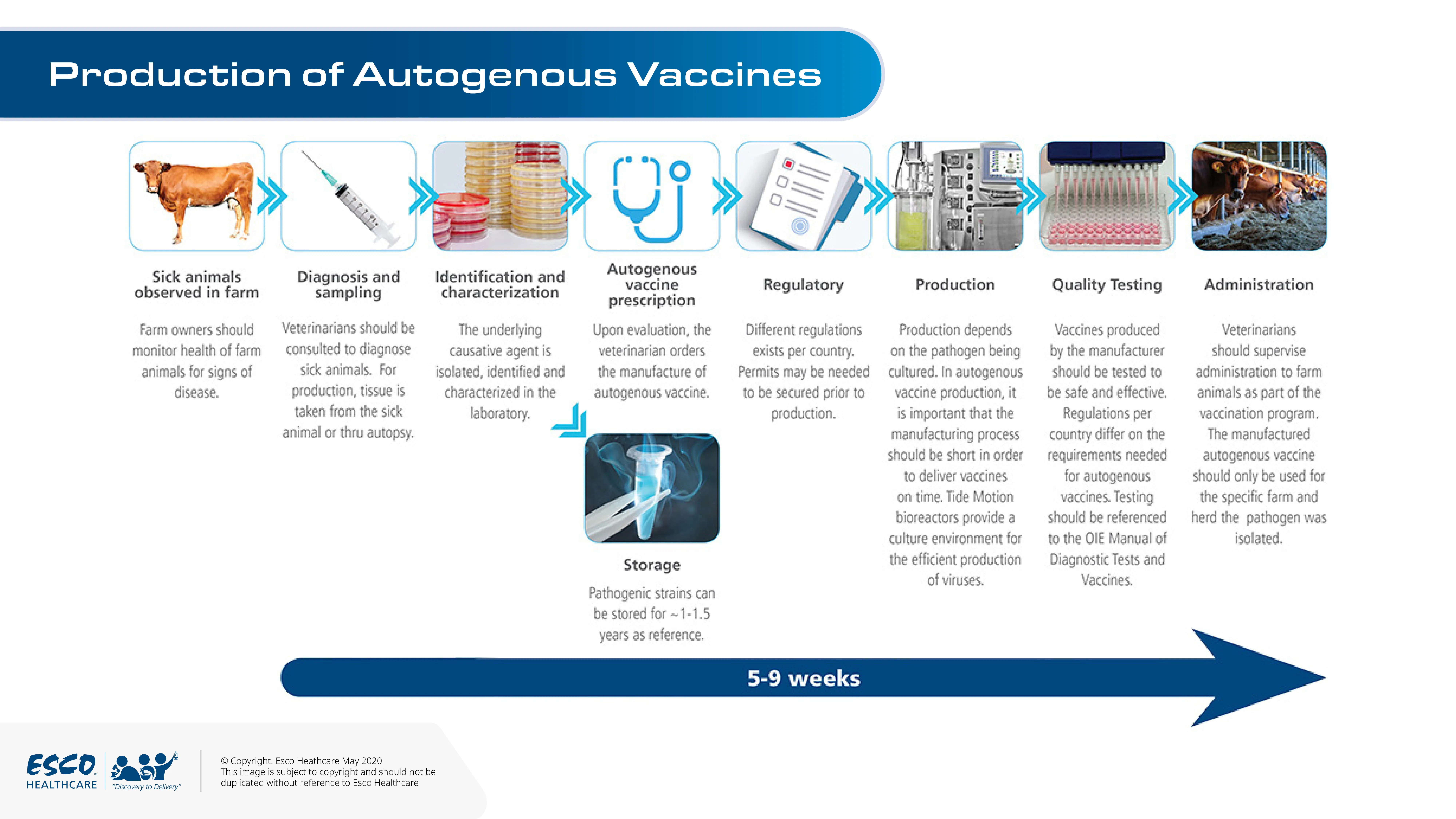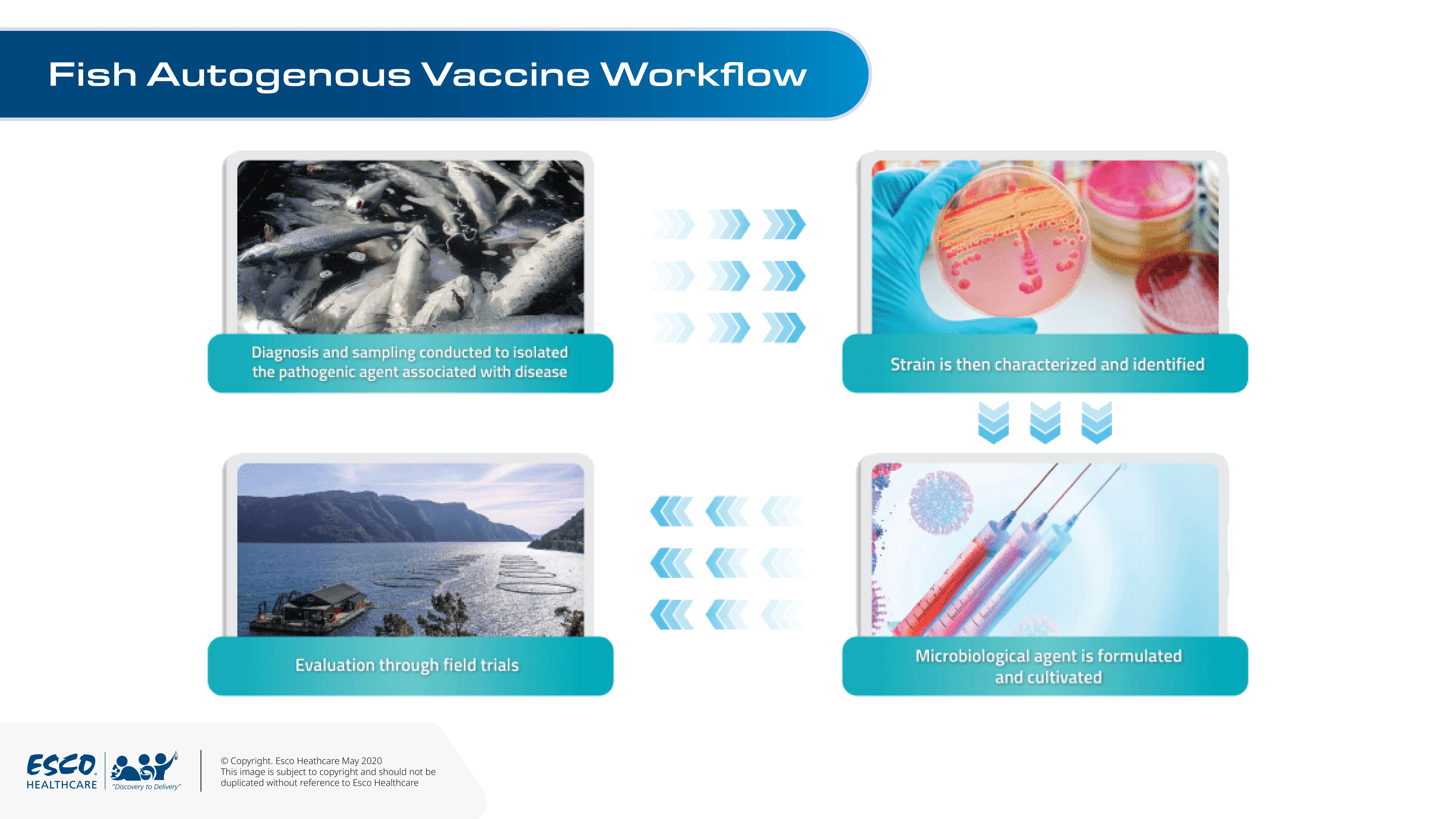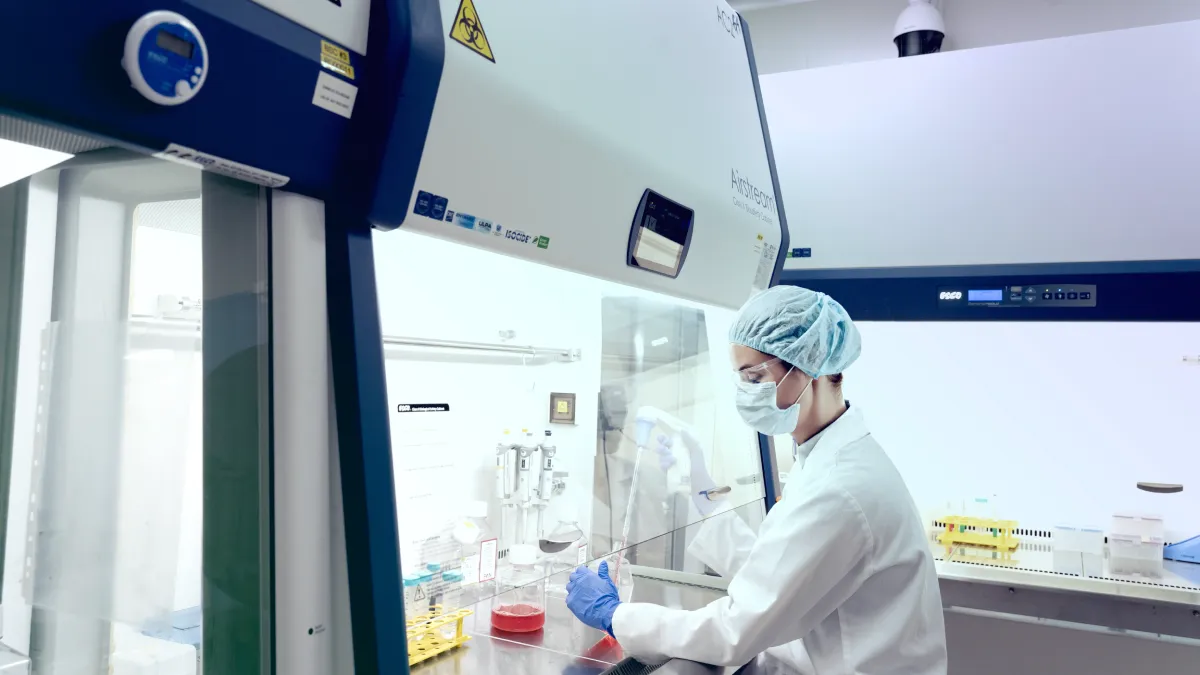Applications
Autogenous Vaccines

Autologous and Autogenous Vaccines
Apart from licensed vaccines, autogenous and autologous vaccines provide additional protection in controlling infectious diseases and maintaining livestock health. These vaccines are also most useful when there are no available licensed vaccines for the target pathogen or species.
Autologous vaccines are veterinary biologics prepared using pathogens and/or antigens isolated from an infected animal and used only for the particular animal.
Autogenous vaccines are veterinary biologics prepared using pathogens and/or antigens isolated from infected animals in a particular farm. These are then administered for the prevention of the disease for the same farm animals or nearby farms. In case of administration of nearby farms, there should be an epidemiological linkage between the farms to establish application of the same autogenous vaccine.
| Countries where production IS ALLOWED* | Countries where production IS NOT ALLOWED | |
|---|---|---|
| Bacterial inactivated autogenous vaccines |
ASEAN Australia Canada All EU member states South Africa United States |
|
| Viral inactivated autogenous vaccines |
ASEAN Australia Belgium Canada Czech Republic Germany Hungary Italy Poland South Africa UK United States |
Croatia Denmark Finland France Iceland Norway Portugal Slovakia Spain Sweden |
| Live-attenuated vaccines** |
ASEAN Australia South Africa |
Canada All EU member states USA |
In Singapore, production of autogenous vaccines (classified as veterinary biologics) is regulated under Animal and Birds Act. A license to possess veterinary biologics should be obtained from AVS and NParks, which sets forth requirements including product testing to demonstrate stability, purity, sterility, and toxicity tests in animals.
Autogenous vaccines are approved to meet specific and immediate need when a disease is associated with a new pathogenic organism, when approved veterinary biologics are not effective in controlling current disease problem (when available vaccines lost their efficacy), or when approved veterinary biologics are not available to prevent or control the disease situation.
Autogenous Vaccines

Fish Autogenous Vaccines
Like terrestrial animals, autogenous vaccine development should also be managed under a comprehensive health program. Vaccination in fish farms should be consulted with a fish veterinarian or fish health specialist.






